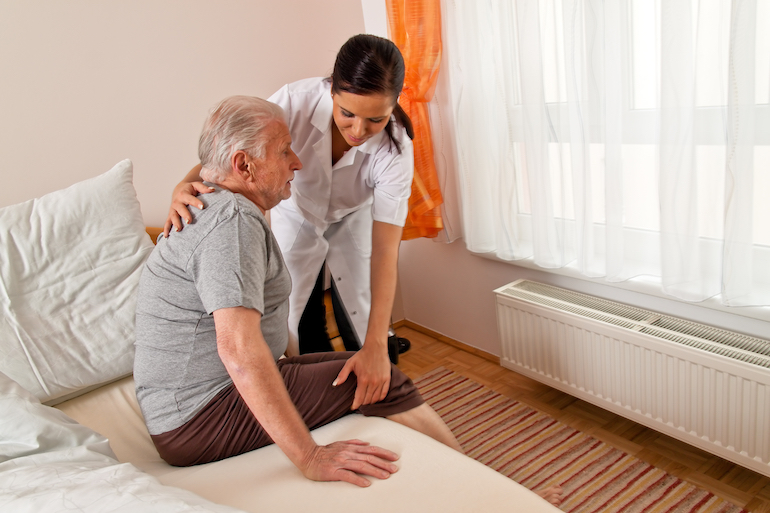How Understaffing in Nursing Homes Hurts Patient Care

Vulnerable elderly people in nursing homes are being mistreated with alarming frequency by those who promised to protect them. In fact, nursing home neglect and abuse is one of the greatest public health crises in our country today. Because many residents are afraid to report abuse for fear of retaliation, exact statistics are hard to find. However, studies show that nursing home residents are abused more often than elderly people in other living situations. One of the major reasons for this appalling epidemic is understaffing in nursing homes.
New Reports Reveal Understaffing in Nursing Homes
In the past, nursing homes were rated according to staffing information reported by the facilities. This system enabled the homes to “pad” their records or schedule extra staff during government inspections.
When Medicare initiated reporting requirements using payroll records, officials discovered many nursing homes had been falsely inflating their staffing levels. Payroll records showed seven out of ten homes had lower staffing levels than reported under the old system. This was especially true for registered nurses, who are required to be present for eight hours every day in each Medicare-licensed home.
Understaffing in Nursing Homes Leads to Neglect and Abuse
When a nursing home doesn’t have enough staff members on site, the residents suffer. The majority of nursing homes in the United States (70%) are for-profit facilities. And, there is a direct relationship between profit margins and low staffing. Statistics show facilities with the highest profit margins have the greatest number of quality violations.
Here are some of the many ways understaffing in nursing homes affects patient care:
- Bedsores
Staff members have less time to properly turn and position bed-bound residents.
- Psychological/verbal abuse
Overworked staff members are more likely to be short-tempered and take out their frustrations on residents.
- Physical abuse
Stressed and tired staff members are more likely to physically abuse residents.
- Poor nutrition
Staff members have less time to spend with each resident during mealtimes, especially those who need extra assistance.
- Dehydration
Residents who need frequent monitoring or reminders to drink fluids are more likely to become dehydrated, leading to other medical problems.
- Exacerbation of pre-existing health issues
Overworked nurses and aides may overlook signs and symptoms that indicate a resident’s condition is worsening.
- Increased risk of infection
Staff members may not have time to properly care for existing cuts or wounds or notice new areas of concern.
- Dental problems
Emerging dental issues may be overlooked and routine dental appointments may not be scheduled on a timely basis when staff members are overworked.
- Medication errors
These potentially dangerous mistakes happen more often in homes with staffing shortages.
- Poor hygiene practices
Residents in short-handed homes may go without regular bathing or clean clothes and bedding.
- Physical restraints
Overworked staff members are more apt to physically restrain residents who need extra attention or monitoring.
- Increased risk of premature death
Elderly people who experience even modest abuse have a 300% higher risk of death compared to those who were not abused.
- Depression and other mental health issues
Residents who are being ignored, neglected or abused have higher rates of depression and anxiety
If you suspect someone you know is experiencing neglect or abuse in a nursing home, call us immediately. Our knowledgeable and experienced lawyers will make sure your loved one is safe while we fight for the compensation you and your family deserve.
Nursing home neglect law is complicated, but finding the right lawyer is simple.
Call 1-800-MALPRACTICE today for a free, no-obligation consultation.
Do You Have a Case?
Sources:
- https://www.ncbi.nlm.nih.gov/pmc/articles/PMC4833431/
- https://www.pbs.org/newshour/health/most-nursing-homes-are-not-adequately-staffed-new-federal-data-says
- https://khn.org/news/feds-order-more-weekend-inspections-of-nursing-homes-to-catch-understaffing/
- https://www.nytimes.com/2018/07/27/health/medicare-nursing-homes.html
- https://www.nytimes.com/2018/07/07/health/nursing-homes-staffing-medicare.html


